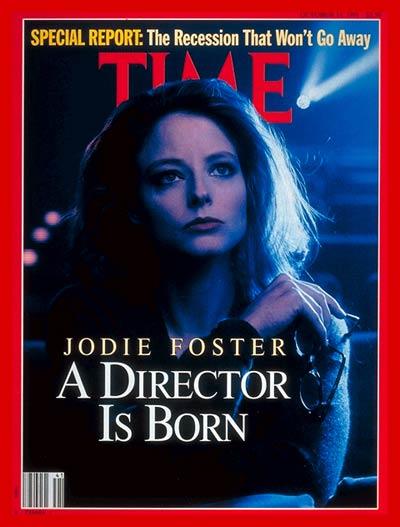
Money Monster, arriving in theaters on Friday, features Julia Roberts, George Clooney and Jodie Foster—but that last movie star won’t be seen on screen. The film is just the latest of Foster’s several turns behind the camera, a move she began to make 25 years ago.
Back then, TIME explored Foster’s decision to direct in a cover story about the star and her film Little Man Tate, in which she also starred.
Get your history fix in one place: sign up for the weekly TIME History newsletter
At the time, Foster was 28 years old, and had been in the public eye for nearly all of her young life. As a child star, she had once told an interviewer that being a director sounded great, because “they get to do anything”: that meant they could “have people killed, blow things up, make people cry and laugh.” But, she said, the job was “a very masculine thing to do.”
MORE: This Forgotten Female Screenwriter Helped Give Hollywood Its Voice
Then Foster went to college, graduated, resumed her career and found Little Man Tate, a child prodigy story that spoke to something she knew firsthand. But, she told TIME, even as she embarked on a directing project herself, she knew the job was still seen as a “masculine” occupation:
As an actress-director, she knows her subject. She could teach Hollywood to moguls; they might learn something. ”This is not a business that is kind to women, but it needs them,” she says. ”The female pioneers have to be 10 times better than a man. Maybe someday there will be an old-girl network. But I’m not interested in alienating the audience. I believe in the system. I’m acutely conscious of the business in this town and how I organize my career…”
As director of Tate, she amassed storyboard details on each scene — not just the camera blocking but the underlying emotions of each character. ”Films are too important not to have a drawn road map,” she says. ”I won’t wing it. When I come into a shot, I always have an idea.” She has an idea too of the field-marshalry of directing a movie. ”You must learn to lead, to be a benevolent king. You try to communicate your vision and monitor those who don’t get it. I feel safe there. I can be vulnerable. The code is, they’ll catch you if you fall down. I have camaraderie with these people. It’s like going through a war together.”
Read the full 1991 cover story, here in the TIME Vault: A Director is Born
Read the accompanying story about women breaking into the director’s chair in 1991: Hollywood’s New Directions
More Must-Reads From TIME
- The 100 Most Influential People of 2024
- The Revolution of Yulia Navalnaya
- 6 Compliments That Land Every Time
- What's the Deal With the Bitcoin Halving?
- If You're Dating Right Now , You're Brave: Column
- The AI That Could Heal a Divided Internet
- Fallout Is a Brilliant Model for the Future of Video Game Adaptations
- Want Weekly Recs on What to Watch, Read, and More? Sign Up for Worth Your Time
Write to Lily Rothman at lily.rothman@time.com